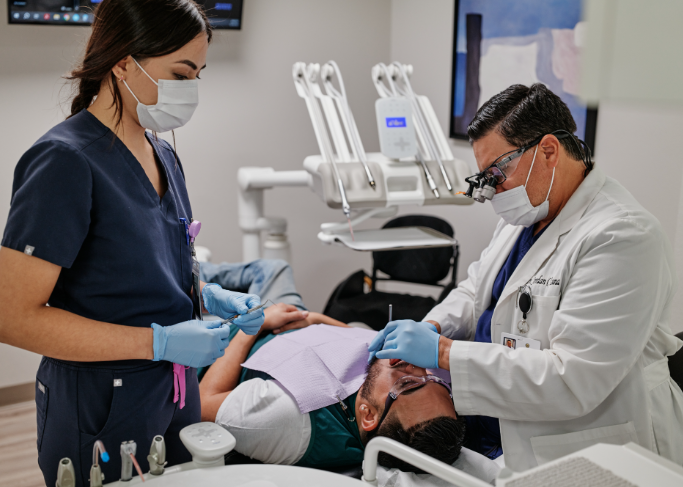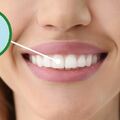The benefits of regular dental checkups for oral health
The benefits of regular dental checkups for oral health
Maintaining good oral health is essential for your overall well-being. While daily brushing and flossing are fundamental, regular dental checkups are just as crucial for keeping your teeth and gums in top condition. These checkups not only help identify potential issues early but also provide preventive care to ensure a healthy and confident smile.

In this article, we’ll explore the numerous benefits of regular dental visits and explain why they are an essential part of your healthcare routine.
1. Early Detection of Dental Problems
One of the key benefits of regular dental checkups is the early detection of dental issues. During a routine visit, your dentist will thoroughly examine your teeth, gums, and mouth to identify:
- Cavities before they grow larger and cause discomfort.
- Gum disease in its early stages, when it’s easier to treat.
- Tooth wear caused by grinding or improper alignment.
- Oral cancer, which can be life-threatening if not detected early.
By catching these problems early, treatment can be less invasive, less expensive, and more effective.
“Early detection is the best way to prevent small dental issues from becoming major concerns.”
2. Prevention of Gum Disease
Gum disease (periodontal disease) is a common condition that can lead to tooth loss if untreated. Regular dental checkups include:
- Professional cleaning to remove plaque and tartar buildup.
- Examination of gum health, including checking for signs of redness, swelling, or bleeding.
- Guidance on proper oral hygiene, such as brushing and flossing techniques.
By keeping your gums healthy, you reduce the risk of gum disease and its associated complications.
3. Professional Cleaning for a Healthier Smile
Even with excellent at-home oral hygiene, some areas of the mouth can be hard to reach with a toothbrush and floss. Over time, plaque can harden into tartar, which requires professional tools to remove.
A professional cleaning during a dental checkup includes:
- Scaling: Removing tartar and plaque from teeth surfaces and below the gumline.
- Polishing: Smoothing tooth surfaces to prevent plaque buildup.
- Fluoride treatments (in some cases): Strengthening enamel and preventing cavities.
These cleanings leave your teeth feeling fresh and smooth while contributing to a brighter, healthier smile.
4. Improved Oral Hygiene Education
Your dentist or dental hygienist can provide personalized advice on how to care for your teeth and gums effectively. This may include:
- Recommending the right toothbrush, toothpaste, and floss.
- Demonstrating proper brushing and flossing techniques.
- Offering tips for reducing sugar intake and avoiding harmful habits, such as smoking.
This tailored guidance helps you maintain optimal oral health between visits.
5. Reduced Risk of Tooth Loss
Tooth loss can result from advanced gum disease, untreated cavities, or dental trauma. Regular dental visits reduce the risk by ensuring:
- Early treatment of dental issues before they worsen.
- Proper care of existing dental restorations, such as crowns and bridges.
- Reinforcement of healthy habits to preserve natural teeth.
By prioritizing regular checkups, you can enjoy a full, healthy smile for years to come.
“Preventing tooth loss is one of the greatest benefits of staying proactive about dental care.”
6. Detection of Systemic Health Issues
Your oral health is closely linked to your overall health. Dentists are often able to identify signs of systemic conditions during a routine checkup, such as:
- Diabetes, which may present as gum inflammation or slow-healing sores.
- Heart disease, linked to gum disease and oral bacteria.
- Osteoporosis, which can weaken jawbones and cause tooth loss.
Detecting these conditions early allows you to seek appropriate medical care.
7. Improved Self-Confidence
A clean, healthy smile can significantly boost your self-esteem. Regular dental checkups help you maintain a confident appearance by addressing:
- Tooth discoloration caused by coffee, tea, or smoking.
- Bad breath (halitosis), often caused by plaque buildup or gum disease.
- Chipped or misaligned teeth, which can be corrected with cosmetic or orthodontic treatments.
Feeling good about your smile can positively impact both your personal and professional life.
8. Cost Savings in the Long Run
While skipping dental checkups may seem like a way to save money, it can lead to higher costs down the road. Preventive care is generally much less expensive than restorative treatments. For example:
- Filling a small cavity costs significantly less than root canal therapy or a dental crown.
- Regular cleanings can prevent gum disease, reducing the need for deep cleaning or surgery.
- Early intervention can save teeth that might otherwise need extraction and replacement.
Investing in routine dental care pays off by avoiding expensive and extensive treatments later.
9. Personalized Treatment Plans
Every individual’s dental needs are different. A regular dental checkup allows your dentist to create a personalized treatment plan tailored to your oral health goals. This plan may include:
- Preventive treatments, such as sealants or fluoride applications.
- Restorative care for damaged or decayed teeth.
- Cosmetic options to enhance the appearance of your smile.
Your dentist can also monitor your progress and adjust the plan as needed over time.
“A tailored dental care plan ensures that your unique needs are met effectively.”
10. Peace of Mind
One of the most underrated benefits of regular dental checkups is the peace of mind they provide. Knowing that your oral health is being professionally monitored can reduce anxiety and help you feel more in control of your well-being.
11. Building a Trusting Relationship with Your Dentist
Regular visits help establish a trusting relationship between you and your dentist. Over time, this trust allows you to feel more comfortable discussing concerns and seeking advice about your oral health. A good dentist-patient relationship also ensures:
- Better communication about treatment options.
- A positive and less stressful dental experience.
- Greater confidence in the care you receive.
12. A Foundation for Lifelong Oral Health
Regular dental checkups are particularly important for children, as they lay the foundation for a lifetime of good oral health. Early visits teach kids the importance of dental care and help them develop healthy habits.
For adults and seniors, maintaining a routine schedule ensures that age-related issues, such as tooth wear or gum recession, are properly managed.
GYIK
1. How often should I visit the dentist?
Most dentists recommend a checkup every six months. However, people with specific conditions, such as gum disease, may need more frequent visits.
2. Are dental checkups painful?
Routine checkups and cleanings are typically painless. If you experience discomfort, inform your dentist, as they can adjust the procedure or use numbing agents.
3. What should I expect during a dental checkup?
A typical checkup includes an examination, professional cleaning, and, if necessary, X-rays to check for underlying issues. Your dentist may also provide personalized advice on oral hygiene.
4. What if I’m nervous about visiting the dentist?
If you have dental anxiety, let your dentist know. Many offices offer relaxation techniques, sedation options, and a friendly atmosphere to help you feel at ease.
By prioritizing regular dental checkups, you not only protect your oral health but also contribute to your overall well-being. From early detection and prevention to cost savings and improved confidence, the benefits of routine dental care are undeniable. Schedule your next appointment today and take the first step toward a healthier, happier smile!

